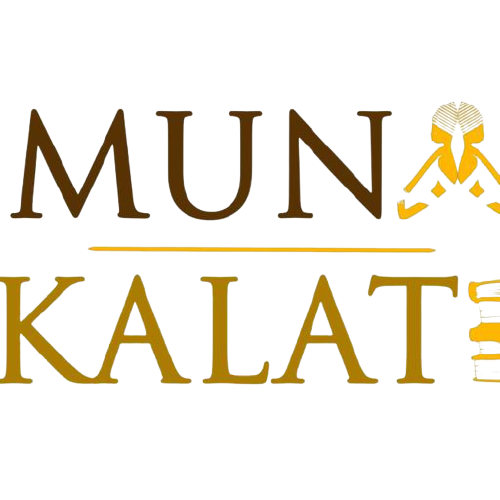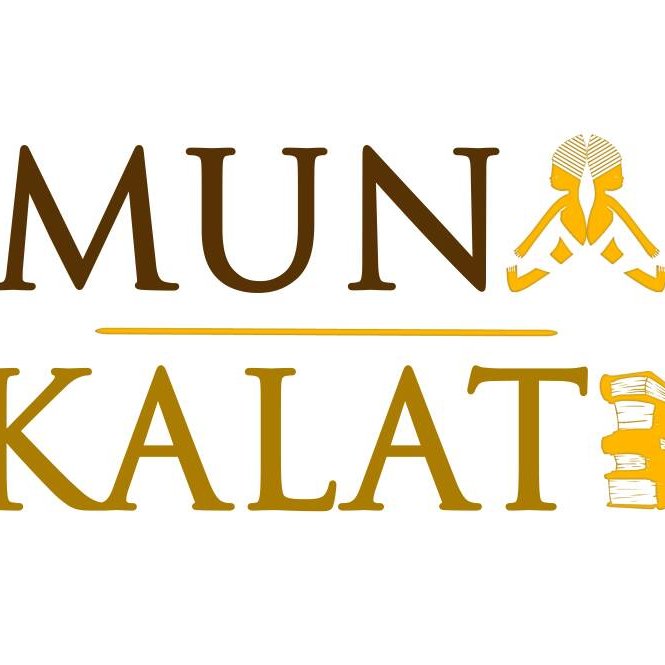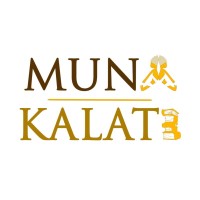African Books Collective (ABC) is a not-for-profit cultural organization that markets and distributes African books, African writers, and African scholarship in the North and Africa. They are strengthening indigenous African publishing through collective action and have increased the visibility and accessibility of the wealth of African scholarship and culture.
Muna Kalati had the privilege of exchanging with ABC’s CEO, Justin Cox who has pioneered this interaction of African publishers with the US, UK, and worldwide, by particularly developing digital solutions. We exchanged on the origin of ABC, its funding and distribution mechanisms, and the sustainability.
Could you briefly introduce yourself?
I am Justin Cox of African Books Collective. In 1985, a group of publishers met to address the constraints they were experiencing in marketing and distributing their books outside of their domestic markets. They founded ABC as a collective self-help initiative to strengthen their economic base and meet the needs of libraries and other book buyers. In 2001, I traveled from my home in New Zealand to the UK where I got a job with the collective, I have been in various roles within the organization since then.
Could you tell us about the African Books Collective? Its objectives, target, and expected results
African Books Collective (ABC) is an African-owned, worldwide marketing, and distribution outlet for over 3,000 titles from Africa. Founded, owned, and governed by a group of African publishers, its participants are independent African publishers who share a common ethos of publishing from within African cultures, asserting Africa’s voice within Africa and internationally. The ethos of the collective is summed up by Professor Abdul Kabir Hussain Solihu of Kwara State University Press in Nigeria (distributed by ABC): “Who the Africans are and what they stand for must not be left for outsiders to tell. We want the African authors to tell their narratives and interpret their own history in a way that would be appreciated by non-Africans. While doing so, they would be able to identify the Africans’ collective intelligence, creative ideas, and aspirations.”
The Collective is in a strong position these days: excellent new publishers are signing up and the market for the books we distribute is growing globally.
Where did you get the idea to set up such an initiative? (What was your inspiration, why this initiative? Why issue or problem(s) are you trying to solve?)
ABC was founded as a collective self-help initiative to strengthen their economic base and meet the needs of libraries and other book buyers. With initial support from funding agencies, trading began in 1989. Major remodeling of the collective took place in 2007 when ABC became self-financing. New opportunities afforded by the evolution of digital publishing and electronic books were seized upon, with ABC playing a key role in the digitization of African cultural output. While adapting to changing markets and methodologies, ABC’s founding ethos and aims remain unchanged, and ABC remains a not-for-profit organization on its own behalf.
How is it different from similar existing projects? What is its added value? *
African Books Collective is a one-stop shop for over 3000 books published in Africa, we are the only such outlet in existence.
What progress or achievements have been made to date?
African Books Collective’s biggest achievement has been its transition to self-sufficiency and the further establishment of a sustainable not-for-profit social enterprise going forward on behalf of its publishers. All of our income is from the sale of the books and eBooks we distribute and sell. We aim to remit the maximum income we can back to the publishers and are always working to get that percentage up depending on how well have done each year.
What is the percentage of sales of African Children’s books in your income? Is there any increased interest in African children’s books in the North? Kindly explain by providing illustrations or statistics
Children’s books are a very small part of our business in terms of sales and income, however, they remain critical as part of our mission. Many publishers in Africa feel strongly that though the collective loses money on children’s books it is important culturally for the books to be on the international markets. We take color illustrated hardback children’s books and a good example of a publisher who does well in this area would be Sub Saharan Publishers in Accra. Their books sell well on Amazon and the authors are all active promoters alongside quality production. There is always interest in children’s books, if the collective received more titles like those of Sub Saharan Publishers the category would be more viable. The costs are that we must warehouse the books, ship them around and they fetch a low price. Indeed yes, I believe interest in diverse books is growing everywhere. In all categories, I think.
Are you collaborating with other entrepreneurs in your industry? If yes, how would you describe these collaborations?
Yes, we have a long history of collaborating and networking with those in the book industry. We are in constant contact with the publishers we represent. The nature of these interactions is largely focused on the opportunities we find for their books and authors internationally, but we also like to stay updated on their local market and find ways to assist there too. We also lobby on the publisher’s behalf in various fora in international markets and contribute elsewhere whenever we are asked. We are often the first point of call for those interested in the area and when we can assist, we do or we put interested parties in touch with publishers directly.
What are the main challenges or difficulties you encounter in carrying out your project? How do you overcome them?
The main challenge would be similar to those of many independent publishers around the world. The margin on the sale of books is very tight, and the fight for the attention of readers is very competitive. We do our best with the marketing and could do more with more time, therefore we encourage African publishers and authors to speak to international audiences directly, build an audience there, and this can help greatly with sales. Another challenge is that there is always too much to do. In this area, we try and stay up-to-date with technology to discover efficiencies there.
How has the COVID-19 impacted your work? What measures did you develop to adapt and build resilience?
Many publishers around the world during COVID-19 have seen increased sales, and ABC has also done very well. There has been increased interest in content from Africa as libraries and institutions are keen to diversify their collections, and they find it easy to source the books from us. The sale of digital books has been strong, but with people at home in lockdowns, print books have also been selling well over this pandemic. I think the future for books is bright! The new ways of working and networking have also revealed many cost-savings in running a book operation and the increase in online networking is much more inclusive.
What support or assistance would you need to increase the impact of your initiative and accelerate its development?
I guess more time and money for marketing, but also others in the book industry need to champion the bookshop so maximum earnings return to publishers in Africa. It would be positive if professors and other academics in the north engaged more with knowledge created in Africa by using their books in class and putting them on reading lists.
What is the impact of your initiative on the promotion of reading and culture?
ABC has remitted over GBP 2 million in earnings to publishers in Africa and has provided a sustainable distribution outlet for their books internationally for over 30 years. As a bookshop, we have been providing access to these books in libraries and other institutions, academics, and individuals. We also provide access to the books “from home” for the African diaspora worldwide. Since transitioning in 2007 to a self-supporting when we were forced to drop publisher remittance to 35%, we have now increased this to 50%, not far from where we were when we had funds.
What are your plans for the 3 to 10 years? What legacy do you want to leave?
ABC needs to keep expanding, but doing this as productively as technology allows. Our goal is to continue to increase publishers’ remittances and to adapt to their needs in an always-changing industry.
Un Any last word?
You can find out more about us here www.readafricanbooks.com and our bookshop is here www.africanbookscollective.com Thanks for reading



